Hussein Muktar does not like eating frozen goat meat from far away. He remembers buying one batch of it at a Maine market – maybe from Australia he thought – that he discovered was well past its expiration date after he’d brought it home. It didn’t smell right, as his wife cooked it. “It was like, black inside,” he said.
This Somali immigrant, who has called Maine home for more than a decade, wishes that Maine’s booming local food movement was producing more fresh goat meat to meet not just his needs but demand from the larger Muslim community.
But it’s a complex picture, both practically and culturally speaking. For starters, not that many farmers are raising meat goats locally. The trend toward adding goats is upward, but still, in the last U.S. Farm Census, completed in 2012, only 305 of Maine’s more than 8,000 farms reported raising meat goats.
To eat halal, or permissible for a Muslim to eat, the animal must be slaughtered in accordance with certain standards, and about those standards there may be even more misconceptions than rules.
Do these immigrants want to hang the animal by their hind hooves for the slaughter? (No, Muktar said.) Do they refuse to eat female goats, preferring only an unneutered male goat? (Again, no, Muktar said.) Will the animal’s jugular be slashed? (Yes.) Even a farmer who understand halal methods may have further questions. Like Kaili Wordwell, one of three owners of Abraham’s Goat Farm and Creamery in Newport, who said she appreciates and supports halal methods.
“They want to know that is this is the animal that they picked out and that is the meat that is coming home with them,” Wordwell said. The more farmers are educated about halal slaughter the better, she said, because the farmer would benefit financially from eliminating the middleman. (Abraham has considered adding a facility on the farm for halal processing for its meat goats but decided to expand into making goat cheese instead.)
But Wordwell emphasized, it has to be humane. At her farm, the animals are raised with love and must “leave with love” as well, she said.
That starts with making sure the animal is not hung by the back feet. “I have witnessed this,” Wordwell said, back when she farmed in upstate New York. She said she never will again; it’s not pleasant. But done properly, with the animal backed into a corner, perfectly acceptable under halal, it is quick and humane, she said.
She’d allow this at Abraham’s, but only if she had confidence in the skills of the person killing the animal.
“I have heard really bad stories from other farmers,” she said.
Furthermore, she and others wonder, is it legal?
Yes, according to the Maine Department of Agriculture, Conservation and Forestry’s Division of Quality and Assurance. The only restriction is that the buyer is preparing the goat for their own use only and the farmer not provide any services throughout the process. Should the farmer be involved, she or he would need to register as an itinerant or custom slaughterer and adhere to state sanitary standards.
It’s even okay to use the barn, although the department spokesman John Bott clarified that if the farmer is “providing tools and water and drainage, you start questioning whether it’s a ‘slaughterhouse’ at that point.”
CORNERSTONE OF CULTURE
Goat meat is a cornerstone of meals in countries like Somalia, where many recent immigrants to Maine are from. You can buy it in places like Portland’s Makkah Halal Market and Peace Food Market or Global Halal in Lewiston, but typically, frozen goat meat is all that is available. Deliveries of fresh, goat meat, are infrequent, and sell out fast. Shopkeepers at those markets said that goat meat typically comes from Boston or New York and never from Maine farmers.
That is changing. One Maine company, Central Maine Meats in Gardiner was authorized for halal butchery by the United States Department of Agriculture nearly a year ago, and now provides halal meat to Mainly Groceries in Augusta and Hallowell.
Herring Brothers in Guilford received the same authorization about a decade ago, said Tom Gilbert, one of the owners, but hasn’t done a halal slaughter in about eight years. “There weren’t any good sales for it,” Gilbert said, speculating that Herring Brothers was too far away from population centers for Muslim populations, like Portland and Lewiston.
Maine’s immigrants from Somalia prefer to buy a whole goat, past the expiration date or not, Muktar said. Around Ramadan, goat figures in many celebratory meals, including the beginning of the fasting period and the end of it. Muktar has found whole goats to buy in Maine, but it is a lot harder than finding a dozen farm-fresh eggs.
“There is not a lot of farmers in the area that have enough to supply to the community,” Muktar said. “Or if they do, they have a small goat that is really expensive.”
Local meat doesn’t tend to be cheap, and even nationally, goat meat prices per pound parallel the price of lamb at just under $5 a pound. Goat is no bargain, no matter what your faith is. But Muktar said that prices for whole animals have increased in recent years. Recently he drove to see a farmer offering a small goat for $200.
“In the past six years, for the same size, $50 dollars, that was the price,” Muktar said. “These days, the price is really high.”
The pleasures of eating goat meat – high in protein but 50 to 60 percent leaner than beef and with 40 percent less saturated fat than even skinless chicken, according to the USDA – may be known to only a small number of consumers. But those who eat goat, whether from Maine’s Muslim community or not, tend to be passionate.
“Goat is a precious commodity in our house,” said farmer Abby Sadauckas, who raises cashmere meat goats at Apple Creek Farm in Bowdoinham. Apple Creek Farm is the only vendor selling goat meat at the Brunswick Winter Market, and Sadauckas expects to sell out all of her meat from this year’s crop of “bucklings” (her young male goats, which typically are about 18 months when slaughtered; she keeps the does to breed) by March 1. “We don’t get to eat a lot of lamb and goat anymore because it sells really quickly.”
UPWARD, BUT STILL TINY
According to USDA data, the overall trend in farmers in the United States raising goats for meat has gone up in this century, enough so that in 2008 USDA added meat goats to the list of livestock it tracks annually.
Maine meat goat production is so small, relatively speaking, that USDA lumps that data together with all the New England states, which in and of itself is a tiny percentage of the overall meat goat production in the United States.
That said, the number of Maine farms producing meat goats has gone up about 30 percent since the USDA started tracking that data in the five-year Farm Census in 1997. It’s an overall upward trend, said USDA sheep and goat expert David Colwell, but one that has fluctuated considerably. The number of Maine farms raising goats even dropped between the 2007 and 2012 Farm Census, while the overall number of actual meat goats on farms has stayed right around 2,000.

The number of Maine farms raising meat goats has gone up about 30 percent since the USDA started tracking that data in the five-year Farm Census in 1997.
“Goats are really hard to track,” Colwell said. A farmer might add 10 or 20 goats to their livestock mix on a fairly small plot of land and then get rid of them by the time the next census rolls around; they’re easy to feed since they eat anything, but are susceptible to some diseases that make them a challenge to keep.
Texas produces the most American-grown goat meat, Colwell said, about 40 percent of the 2 million goats processed in 2016, with Tennessee a distant second. Maine doesn’t even rank in those numbers. According to Maine’s Department of Agriculture, Conservation and Forestry spokesman John Bott, over 1,000 goats go through the Somerset Livestock Auction in one year. But that number includes goats sold for breeding, pets and for dairies.
WAITING FOR THE TREND
Doreen Cabot of Foggy Meadows Farm on North Haven has been raising Boer goats, a popular meat goat, for 12 years. During that time she’s seen a number of articles in newspapers and magazines trumpeting goat as the “new” meat. She’s still waiting for that food trend to be true. In her opinion, it deserves to be. “I love goat meat,” she said, particularly in burgers or garlic sausage.
But she’s cutting back on her herd. In a peak year, they’ve bred 20 does. This year, they bred only four. “Sam is always threatening to get rid of the goats,” Cabot said. Really? Don’t they eat everything? Yes, she said, but compared to her small steers and sheep, “they take more work.” Hoof problems and parasites like ringworm can be the ruin of a herd, she said, and a challenge to treat.
Other farmers echoed this. Ramona Stinson, who keeps a herd of about 40 meat goats in Bowdoin, has battled a form a roundworm called the Barber Pole. “It is a bloodsucking internal parasite, and it can really devastate a goat herd rapidly. You can look at a goat and she’ll be fine and the next day, she’ll be dead.”
Stinson sells some animals at auction and once allowed a lamb to be slaughtered on her farm according to halal methods. “They were pretty excited and wanted to come back,” she said but that hasn’t happened, and she’s been too busy to pursue it.
Foggy Meadows slaughters six or seven goats at the end of a summer, and she said that meat typically stays on the island (including in her freezer) and is sold out of her farm store. Foggy Meadows does not supply any of the halal markets. “The problem is they don’t want to pay a decent price, and we have to pay a lot to get them off the island,” Cabot said.
Price, Muktar agrees, is an issue.
“It is true there is not a lot of cash flow (in the immigrant community),” he said. When he lived in Vermont in 2005, he said he knew of a farmer who raised goats and would sell meat to Somali immgrants using EBT cards, the term for food stamps. “I don’t think that is happening here in Maine.”
Abraham’s Goat Farm and Creamery in Newport accepts EBT payments at its farm store. Many Maine farmers markets also accept EBT cards, but goat meat is only available at a limited number of them. And the likelihood of that goat meat being halal is slim. (Abraham’s is not.)
MEAT DEMAND? MEET SUPPLY
The more Mainers try goats, like it and come back for more, the more farmers will be inspired to raise a herd. Tom Gilbert of Herring Brothers, a slaughterhouse in Guilford, has noticed an uptick in the number of goats he’s processed by conventional methods. “Just in the last 10 years,” he said. When he started in the business 45 years ago, he never handled a goat. Now he handles nearly as many as lambs.
But goat meat isn’t always the easiest sell, especially in the age when farmers have Instagram feeds full of the photogenic creatures.
“There are some people that have been here in the summer who are like, ‘I could never eat a goat,’ ” Cabot said. ” ‘They are so cute.’ ”
Abby Sadauckas would never dispute that cuteness. Goats are charming, as well as smart. Goats are also far more personable than the sheep she and partner Jake Galle also keep. Take feeding time: “The sheep are like, ‘when you get to us we’ll be very appreciative,’ ” Sadauckas said. “The goats are like, ‘Hey, garçon, we’re ready.’ ”
Her goal is to give her beloved animals good – and long – lives before they’re processed. And she’s gradually building up her breeding stock. Soon she may be able to help immigrants radically improve their access to halal goat meat, namely by helping them start raising their own goats.
There are dozens of New American farmers in Maine, working on small plots in farms in Lisbon and Cumberland, but to date they have been limited by lease agreements to growing produce, not livestock. Two major new projects present opportunities to change that. The first is New Roots Cooperative Farm in Lewiston, where Muktar’s mother Seynab Ali is one of four New American farmers growing produce on 30 acres of land in a lease-to-own scenario. The second is Hurricane Valley, Cultivating Community’ fledgling venture on 62-acres in Falmouth, where immigrant farmers, many of them Somali-Bantu will soon be raising crops. Both farms will allow livestock, and Muktar said adding goats is definitely in the works for New Roots as it moves into its second season.
But the farmers are still working out the details. At New Roots, they don’t live on the land – which was sold without a farmhouse – and goats require overnight supervision. Again, differences in culture comes into play. Back in Somalia, Muktar explained, families keep a handful or two of goats, securing them in the yard at night, then in the morning, a rotating roster of goatherds will take the entire town’s goat population into the forest for the day to graze.
“Here we don’t have that system,” Muktar said.
“We are really excited about the prospect of helping them with some breeding does,” Sadauckas said. “We are open to that idea. The hard part is that they reproduce really easily – they are like potato chips; you can’t have just one – but the day-to-day management is not so simple.”
Send questions/comments to the editors.



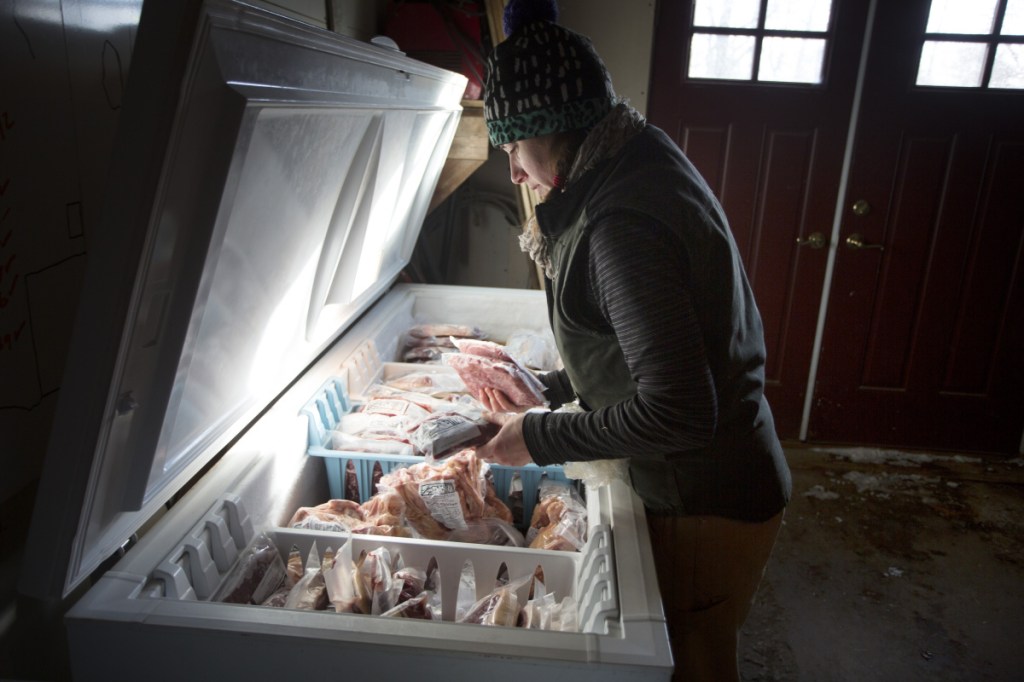
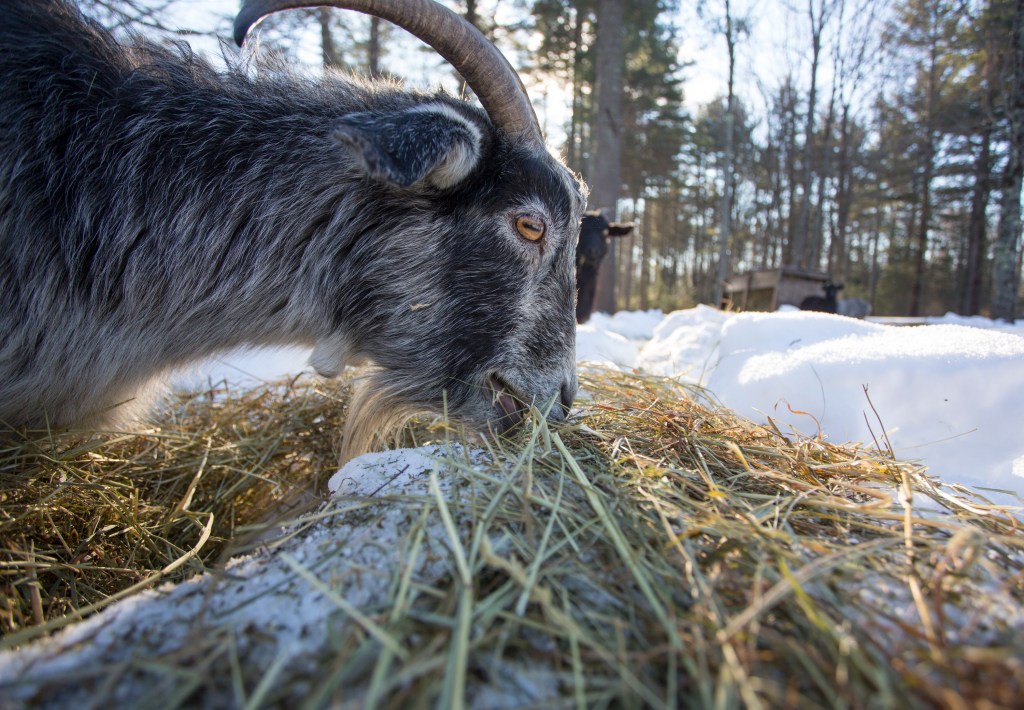
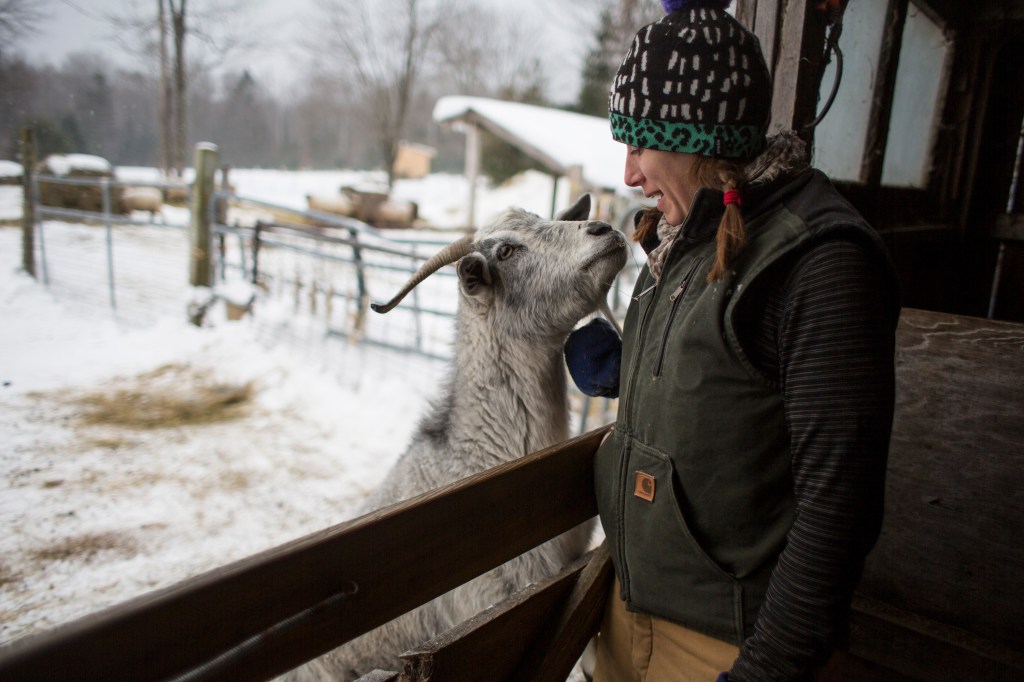
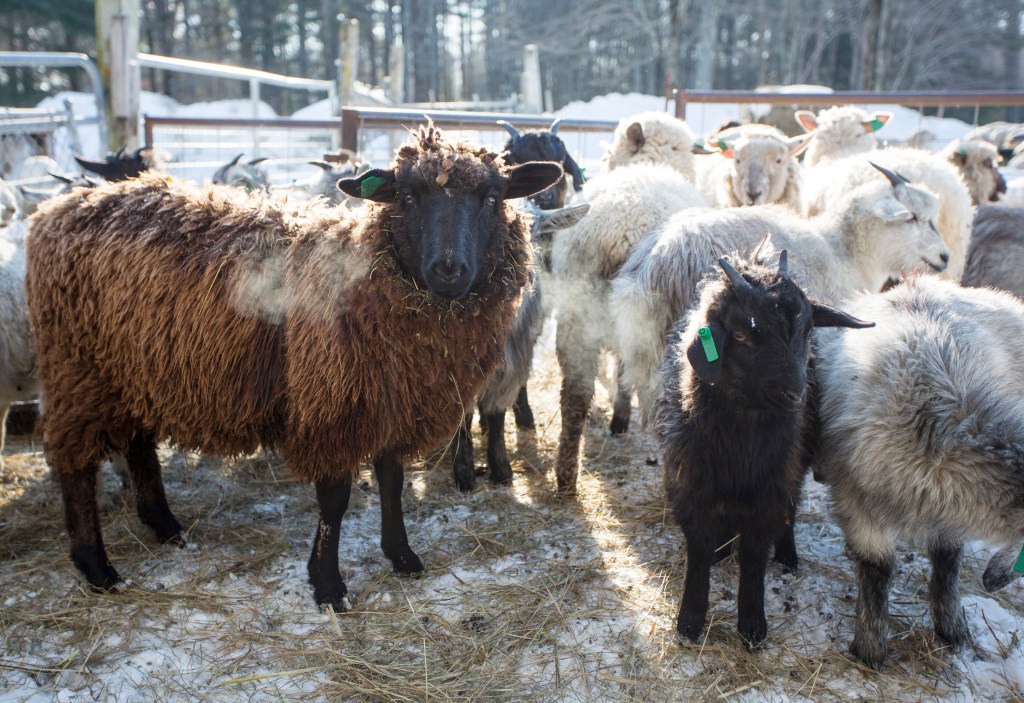
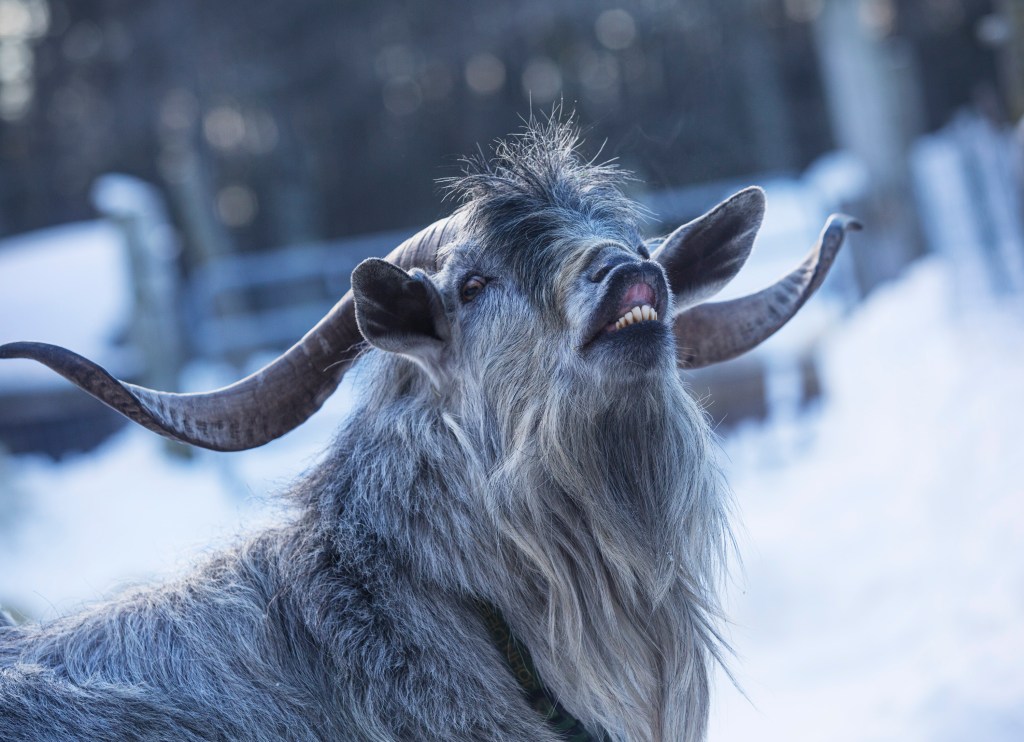
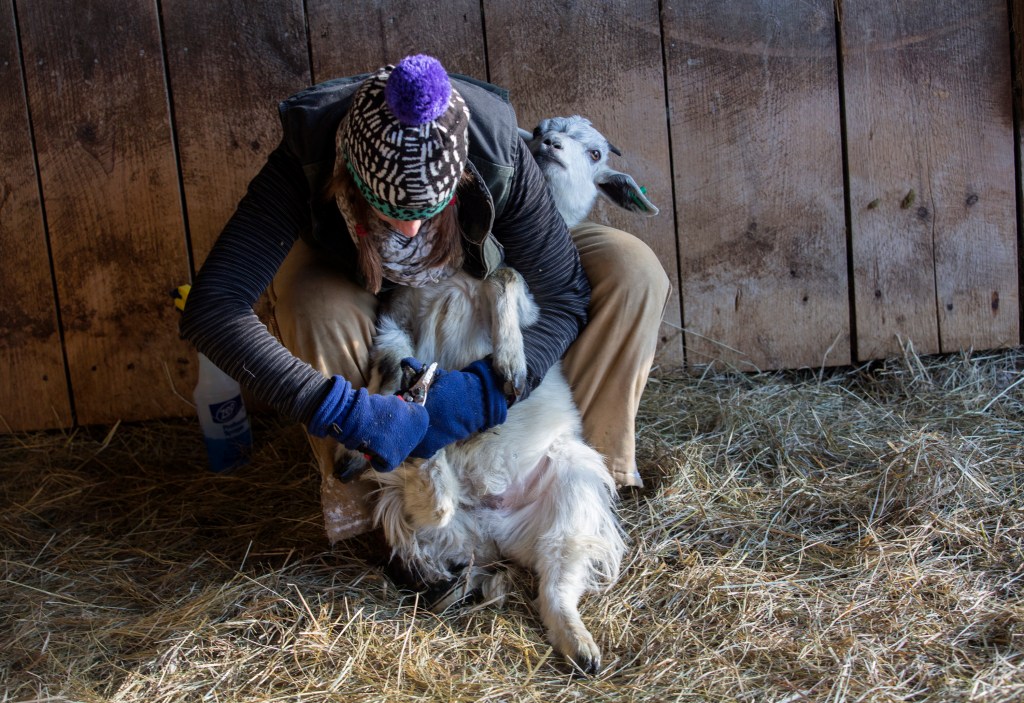
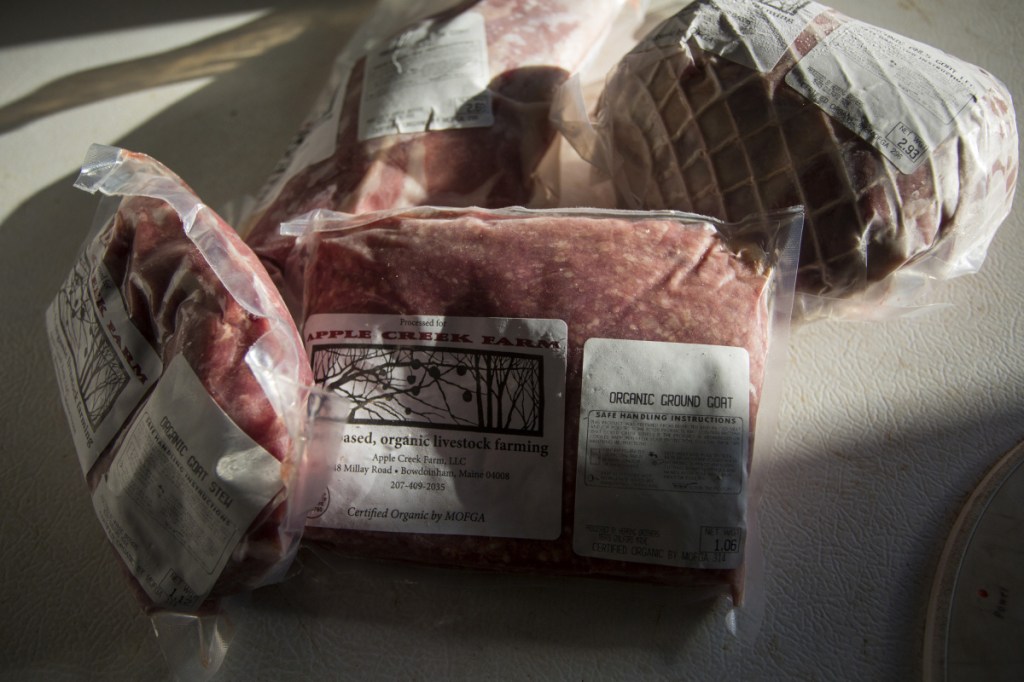

Success. Please wait for the page to reload. If the page does not reload within 5 seconds, please refresh the page.
Enter your email and password to access comments.
Hi, to comment on stories you must . This profile is in addition to your subscription and website login.
Already have a commenting profile? .
Invalid username/password.
Please check your email to confirm and complete your registration.
Only subscribers are eligible to post comments. Please subscribe or login first for digital access. Here’s why.
Use the form below to reset your password. When you've submitted your account email, we will send an email with a reset code.